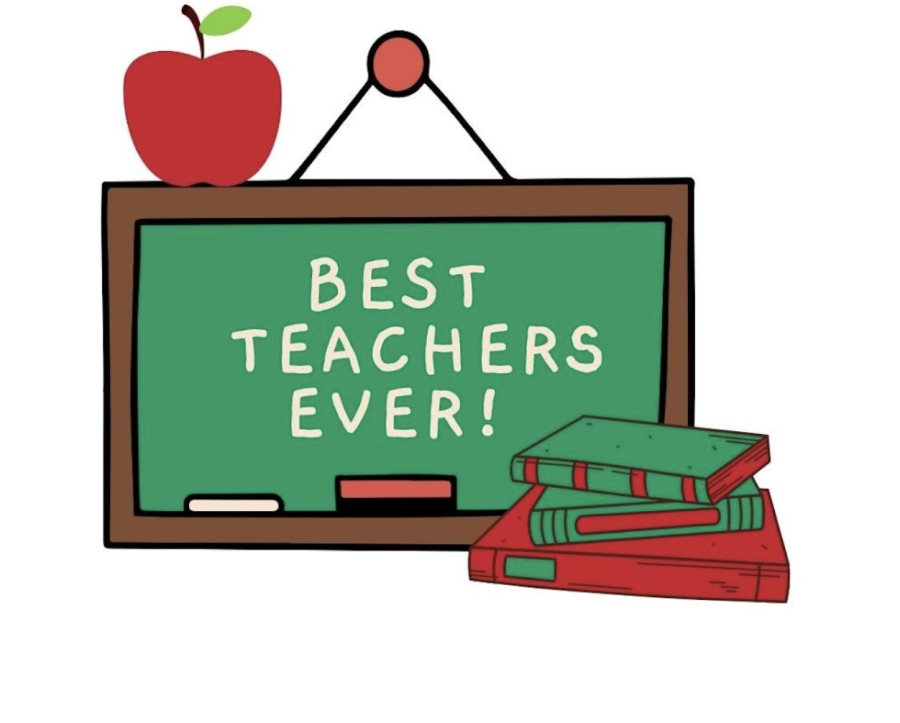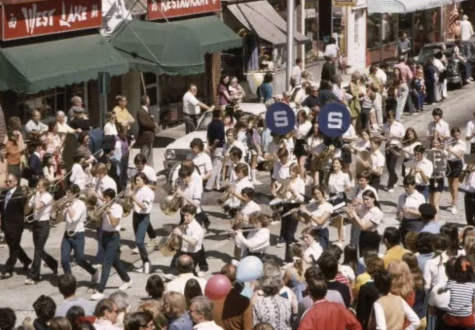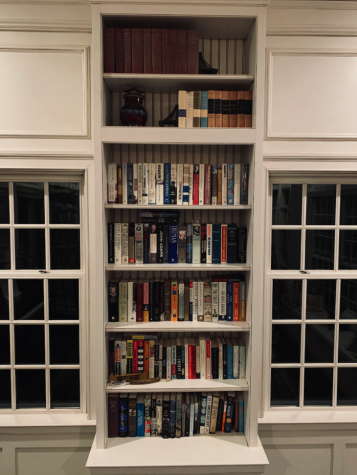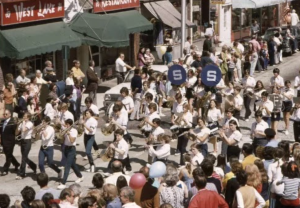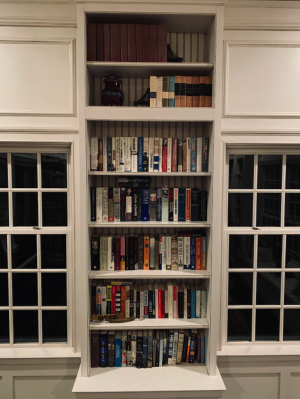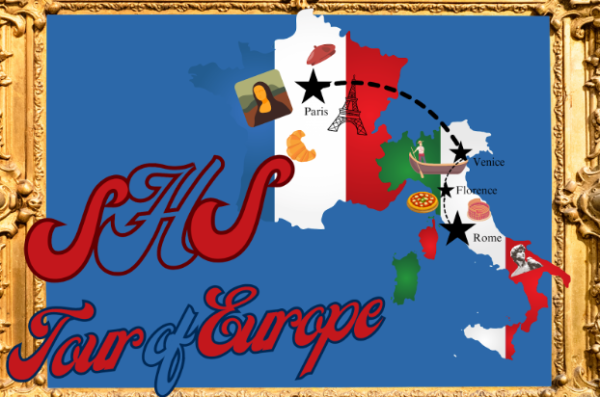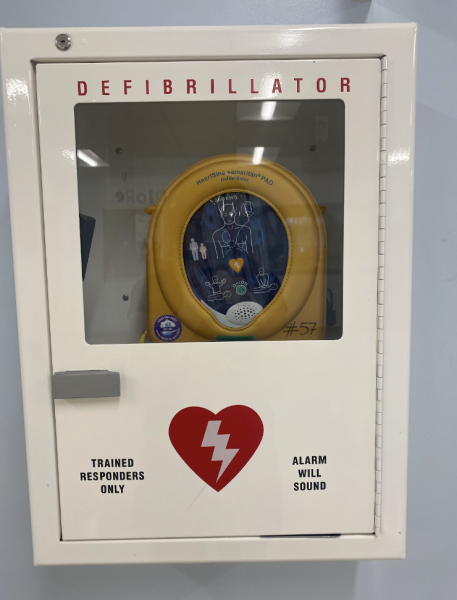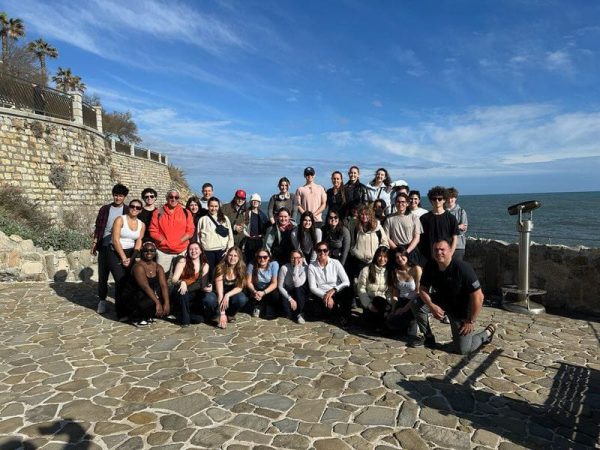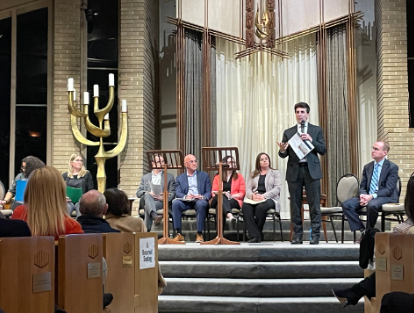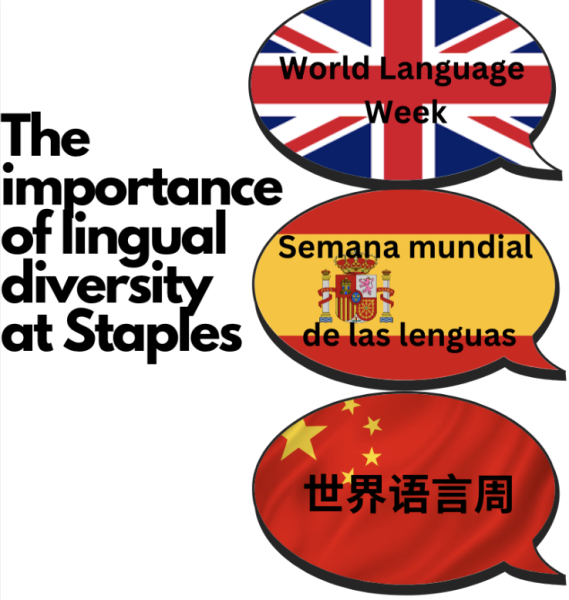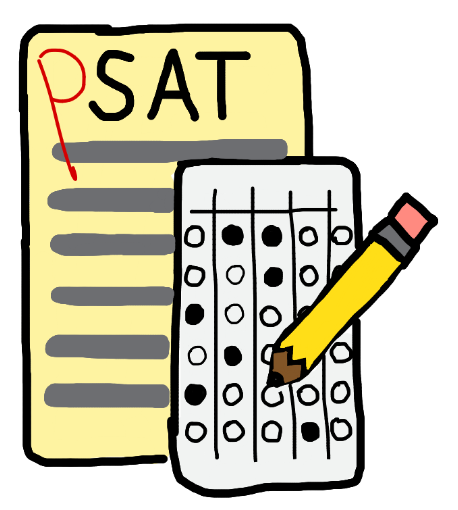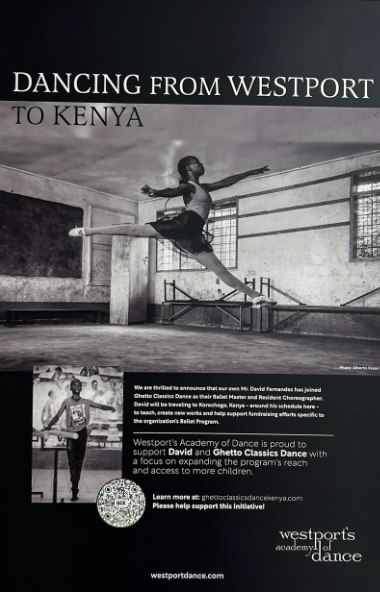Teacher Appreciation Week: Do teachers actually feel appreciated?
Graphic by Madeline Michalowski ’22
Books and a chalkboard represent all that teachers do for students, including picking course materials and covering what they feel is important for students to know.
Teacher Appreciation week was created by the National Parent Teacher Association in 1984. The week takes place every year from May 2-6. This year marks the 38th year of the week being recognized. This led to the decision to ask five teachers if they feel appreciated, and how they feel about the week as a whole.
What is the most memorable gift you have received from a student?
“I think the most memorable gifts that I have received from students in general are the notes/drawings that they have given me showing their appreciation,” science teacher Jacob Tourigny said. “I really appreciate them and keep all of them taped to my desk as momentos.”
“The one that makes me feel most cherished was a photo of the student and me working on their dish at the Westport Farmers Market in the fall,” Culinary teacher Cecily Gans said. “I didn’t know the photo was even taken, and it was presented in a little frame that was very unique to her (the student). I’ve received all sorts of gifts (even knives!) but that one really stands out.”
A handful of my students have appreciated me and have given me cards or small tokens but beyond that no. Also if you need an appreciation week for a group, that usually means they aren’t appreciated the rest of the year.
— Heather Wirkus
Do you get treated differently by students during teacher appreciation week? How so?
“A handful of my students have appreciated me and have given me cards or small tokens but beyond that no,” science teacher Heather Wirkus said. “Also if you need an appreciation week for a group, that usually means they aren’t appreciated the rest of the year.”
“Not at all! Honestly, I really feel appreciated most of the time, but no special treatment one week a year. (Although I do really love it when students say ‘Thank you!’ at the end of class)” Gans said.
What’s your favorite part of teaching?
“When students are surprised by how much they can actually accomplish, and when they exceed their own expectations – and this happens a lot,” Gans said. “You can hear it in their tone when they say, ‘This is so good!!’ as if it’s a total surprise that they made something complicated and challenging that turned out really well.”
“My favorite part of teaching is learning and laughing along with my students,” social studies teacher Jonathan Shepro said.
What’s your favorite course to teach and why?
“I’ve always said US History. I like it because of its immediacy- the topics are almost immediately connected to student’s lives,” social studies teacher Daniel Heaphy said. “Also, because we’re so young (relatively) as a nation- the sources are very recent and the discussions still exciting because we’re still ‘living’ in our history.”
“I love teaching all classes, but I have favorite units: In Food Lit: I love the catharsis assignment for the story, but the brown bag lunch is always really wonderful. In Culinary Arts I: cinnamon buns… super rewarding,” Gans said. “In Culinary Arts II: Southeast Asia or Spain – just authentic, challenging and delicious! Lastly, in Advanced: The food truck project is so much fun! It’s also the project I think the students most look forward to doing.”

Staff Writer Christopher Tatusko ’22 has always had a passion for writing.
“I was a writer for a paper outside of Inklings that I contributed...











































